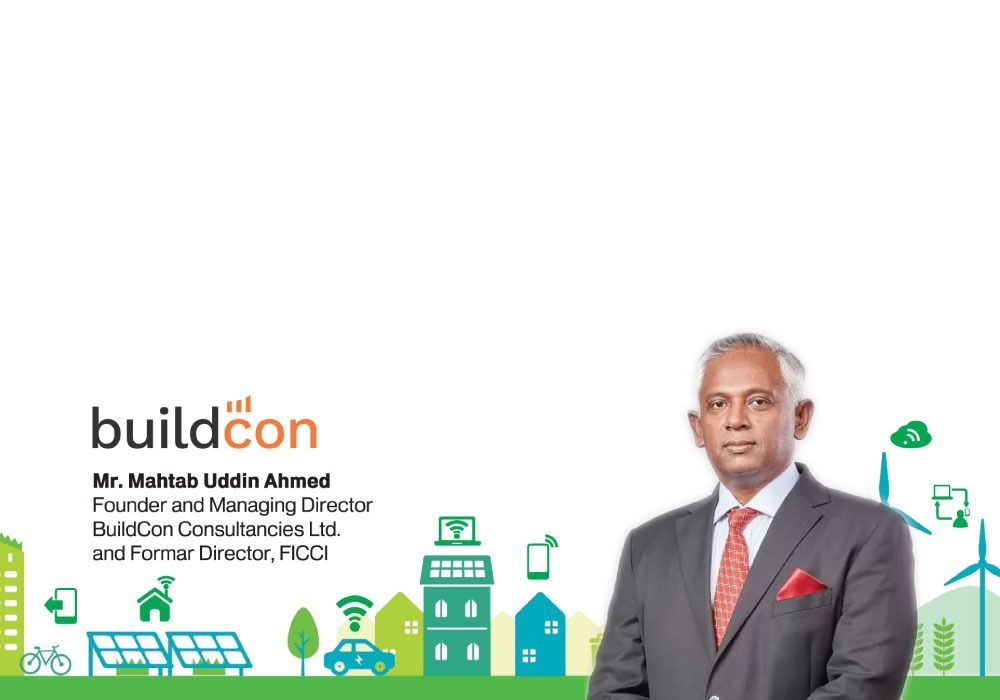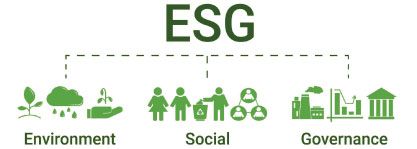- info@ficci.org.bd
- |
- +8802222271610, +8802222271611
- Contact Us
- |
- Become a Member
- |
- |
- |
- |
- |

Singapore's Prime Minister Lee Kuan Yew once remarked that he faced two options: either he could become corrupt, enrich his family, and leave his people impoverished, or he could serve his country, uplift his people, and elevate Singapore to be among the top ten economies in the world. Reflecting on this philosophy, a friend in our group suggest- ed we adopt a similar approach when implementing ESG principles, particularly focusing on Governance. Another friend humorously added that we had the same two options, but since the second one was already taken by the Singapore Prime Minister, we didn't really have a choice!
ESG (Environmental, Social, and Governance) principles are crucial for Bangladesh due to its climate vulnerability, need for sustainable energy, and socio-economic challenges. Environmental initiatives like renewable energy invest- ments address severe climate risks, while social policies promote poverty reduction, labor rights, and equitable growth. Good governance is essential to combat corruption, enhance transparency, and create robust regulatory frameworks, attracting foreign investment and ensuring economic stability. Implementing ESG principles aligns with Bangladesh's development goals, fostering sustainable and inclusive growth for the future.

Bangladesh ranks very poorly in terms of corruption. According to the 2023 Corruption Perceptions Index (CPI) by Transparency International, Bangladesh scored 24 out of 100, positioning it at 149th out of 180 countries and ranking it 10th from the bottom globally. This score is the lowest for Bangladesh in the past 12 years. The country's corruption issues are particularly severe in the public sector, including areas like public procurement, contract implementation, and money laundering. Among South Asian countries, Bangladesh is only ahead of Afghanistan, reflecting significant challenges in governance and transparency. Hence, Bangladesh needs to focus critically on the Governance part of ESG initiatives.
To drive a culture of good governance and eradicate corruption as part of its ESG (Environmental, Social, and Gover- nance) initiatives, Bangladesh should adopt a multi-faceted approach involving legal reforms, transparency measures, and stakeholder engagement. Here are some key strategies:
1. To drive a culture of good governance and eradicate corruption in Bangladesh as part of its ESG initiatives, it is essential to enforce strict anti-corruption laws and ensure their consistent application while strengthening institutions like the Anti-Corruption Commission (ACC) to operate independently and effectively. Additionally, improving the efficien- cy and integrity of the judicial system is crucial to ensure swift and fair trials for corruption cases, reinforcing the rule of law and fostering a transparent and accountable governance framework.
2. To enhance transparency and accountability in Bangladesh, it is essential to mandate the public disclosure of government officials' assets and income, thereby enhancing accountability. Implementing digital platforms for asset declaration can streamline this process and increase transparency. Additionally, promoting open data initiatives to make government activities and spending publicly accessible is crucial. This level of transparency allows citizens and watchdog organizations to monitor and report potential corruption effectively, fostering a more accountable governance framework.
3. To promote ethical corporate governance in Bangladesh as part of its ESG initiatives, developing and enforcing corporate governance codes that emphasize ethical practices, transparency, and accountability is vital. Companies and ministries should be required to report on their governance practices and ESG performance regularly. Additionally, the role of board oversight must be strengthened in both the public and private sectors to ensure adherence to these ethical standards and governance practices, fostering a culture of integrity and accountability across all levels of corporate and governmental operations.
4. To build capacity, it is crucial to implement comprehensive training programs for government officials and corporate executives focused on ethics, anti-corruption measures, and good governance practices. Public awareness campaigns should also be launched to educate citizens about the importance of good governance and the harmful effects of corrup- tion. Engaging civil society and media in these campaigns can significantly amplify their impact, promoting a culture of transparency and accountability across all sectors.
5. To encourage stakeholder engagement in Bangladesh, it is essential to foster partnerships with civil society organizations to monitor governance practices and report corruption. Civil society can be crucial in advocating for reforms and holding authorities accountable. Moreover, collaborating with international organizations and adopting best practices from countries that have successfully reduced corruption and improved governance can further enhance these efforts, promoting a culture of transparency and accountability. Even exchanging data with countries where illegal money is kept can reduce corruption or act as discouragement for corrupt groups. In a worst-case scenario, the money will stay within the country to play some role in economic development. In our recent budget, the black money holders were incentivized for the same reason: by being unfair to the honest taxpayers.
6. To drive technology and innovation, implementing e-governance solutions is essential to reduce human discretion in administrative processes, thereby minimizing opportunities for corruption. Digitalizing public procurement, licensing, and land registration services can significantly enhance transparency and efficiency. In addition, exploring the use of blockchain technology for transparent and tamper-proof record-keeping in government transactions and public services can further ensure accountability and integrity in governance. In the current context, much digitalization has taken place as a part of the Digital Bangladesh and Smart Bangladesh initiative. However, human intervention is still kept by the respective agencies, so corrupt practices can continue.

Global best practices for good governance as part of ESG initiatives include enforcing robust anti-corruption laws, promoting transparency through public disclosure and open data initiatives, and ensuring strong regulatory frameworks as recommended above. For instance, in Scandinavian countries like Sweden and Norway, transparency and accountability are emphasized through comprehensive public access to government records and stringent anti-corruption measures. The European Union requires large companies to disclose non-financial information, enhancing transparency and accountability in corporate governance. Furthermore, adopting e-governance and digital platforms in countries like Estonia has minimized human discretion in administrative processes, reducing opportuni- ties for corruption. These practices collectively foster a culture of integrity, accountability, and sustainable develop- ment.
In conclusion, embracing ESG principles, particularly focusing on Governance, is vital for Bangladesh to tackle its pervasive corruption and build a sustainable future. By adopting strict anti-corruption laws, enhancing transparency through public disclosures and digital platforms, promoting ethical corporate practices, and engaging stakeholders, Bangladesh can transform its governance landscape. By learning from global best practices and leveraging technolo- gy, the nation can foster a culture of integrity and accountability. These efforts are essential to attract foreign invest- ment, ensure economic stability, and achieve sustainable and inclusive growth, all of which align with Bangladesh's long-term development goals





